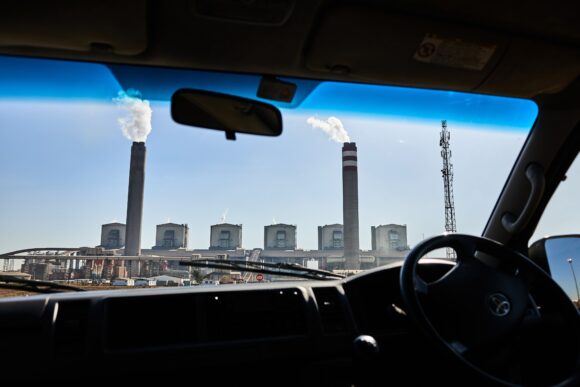Climate change poses the most significant threat for South African insurance companies and risks raising premiums and the cost of reinsurance, a top official at its biggest insurer by assets said.
After staying almost flat in the decade to 2020, the cost for reinsuring against catastrophic events for Old Mutual Ltd. has climbed as much as 30%, according to Garth Napier, managing director at Old Mutual Insure Ltd., the group’s non-life unit.
In addition to Covid-19, reinsurance costs have jumped due to the worst flooding in almost three decades that drowned more than 400 people in landslides and washed away houses in 2022, he said in an interview Friday.
Reinsurers — the businesses that underwrite insurance companies — paid out in excess of 30 billion rand ($1.6 billion) for that catastrophe, Napier said. Reinsurance broker Gallagher Re Inc estimates that last year, insured losses for global natural disasters reached $123 billion.
“The biggest concern for the industry is climate change driving a significant increase in the number of events that are happening,” he said. “There’s definitely some data to support that we are seeing an increase in frequency in South Africa and globally, and that the extent of the damage is definitely a lot higher than what it would’ve been in the past.”
Customers could see a 10% increase in premiums across the board this year, Napier estimated.
Top Emitter
Last year, an investment-management arm of Old Mutual said it would vote against some resolutions at an annual general meeting of Sasol Ltd. because of the petrochemicals and fuel firm’s poor record on climate targets. The company accounts for about a fifth of the South Africa’s greenhouse gas emissions and releases a slew of pollutants. It has set a target of cutting emissions by 30% by 2030 and reaching so-called net zero by 2050.
South Africa is highly vulnerable to climate change and is ranked 96 out of 182 countries assessed under the Notre Dame Global Adaptation Initiative index. The economy is also at risk due to the nation’s dependence on rain-fed farming and natural resources, according to the World Bank.
The country is one of the world’s Top 15 carbon emitters, according to USAID data, with the national average temperature increasing twice as fast as the global rate since 1990, putting it at risk of extreme weather events. It has a $80 billion investment plan to help it transition away from fossil fuels over five years.
Last year was the planet’s hottest on record, and scientists are already predicting that 2024 will be even hotter.
Top photo: Chimney flues vent steam at the Kusile coal-fired power station, operated by Eskom Holdings SOC Ltd., in Delmas, Mpumalanga province, South Africa, on Wednesday, June 8, 2022. The coal-fired plants sixth and last unit is expected to reach commercial operation in two years, with the fifth scheduled to be done by December 2023. Photographer: Waldo Swiegers/Bloomberg
Was this article valuable?
Here are more articles you may enjoy.


 Asbestos Lawsuits Prompt Vanderbilt Minerals to File Bankruptcy
Asbestos Lawsuits Prompt Vanderbilt Minerals to File Bankruptcy  When the Workplace Is Everywhere: The New Reality of Workers’ Comp Claims
When the Workplace Is Everywhere: The New Reality of Workers’ Comp Claims  Walmart to Pay $100 Million to Settle FTC Case on Driver Wages
Walmart to Pay $100 Million to Settle FTC Case on Driver Wages  UK Floods Raise Specter of ‘Mortgage Prisoners’ Across Banks
UK Floods Raise Specter of ‘Mortgage Prisoners’ Across Banks 